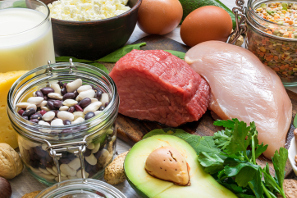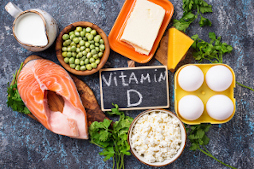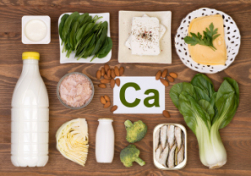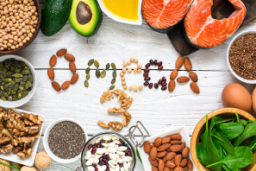Vitamin B12: why is it essential for pregnant women?
It ensures proper folate metabolism
Every pregnant woman needs vitamin B12 for the correct development of her baby. Vegan or vegetarian women and pregnant women who have had a gastric by-pass or pernicious anaemia should be aware that their B12 levels may be insufficient. Let's take a look at the functions of this nutrient, which is crucial during pregnancy.
Vitamin B12, essential to the function of folates
The folate cycle is linked to other B-complex vitamins such as B2 and B6 and especially vitamin B12.
- It is important to have good levels of vitamin B12 to guarantee proper folate metabolism.
- Even when the recommended daily amount of folate intake is met during pregnancy, a lack of vitamin B12 may prevent folates from functioning correctly and similar folates neural tube defects, etc.).
- This is why vitamin supplements for pregnant women always contain vitamin B12 along with folates.
At least two micrograms of B12 per day
According to the Spanish Society of Gynaecology and Obstetrics (SEGO) and other international societies, the recommended daily dose of vitamin B12 during pregnancy is two micrograms per day.
Vitamin B12 deficiency in pregnant women
Vitamin B12 deficiency in pregnant women has been associated with several risk factors such as:
- Pernicious anaemia.
- Having had a gastric "by-pass" (for obesity).
- An inflammatory bowel disease (such as ulcerative colitis or Crohn's disease).
- Vegan or vegetarian pregnant women, as meat is an important source of vitamin B12.
Measuring blood levels of B12 before pregnancy
All pregnant women with any of the above-mentioned risk factors for suffering a vitamin B12 deficiency should have their blood levels measured before and during pregnancy in case it is necessary to use supplementation with a higher dose than the one generally used for pregnant women.
Foods rich in vitamin B12 for pregnant women
- Red meat and poultry
- Veal liver
- Clams
- Eggs
- Milk and other dairy products











